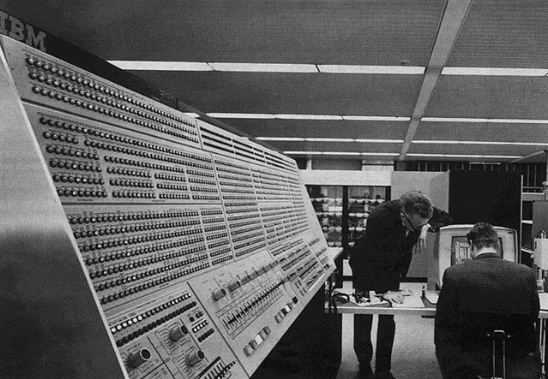Artificial Intelligence (AI) is a branch of computer science that proposes to develop devices that simulate the human capacity to reason, perceive, make decisions and solve problems, in short, the ability to be intelligent.

Existing for decades, this area of science is greatly driven by the rapid development of computing and computing, allowing new elements to be quickly added to AI.
Story
Begun in the 1940s, research around this fledgling science was developed just to find new features for the computer, still in design. With the advent of World War II, there also arose the need to develop technology to boost the war industry.
Over time, several lines of AI study emerge, one of which is biological, which studies the development of concepts that intended to mimic human neural networks. In fact, it is in the 1960s that this science is nicknamed Artificial Intelligence, and researchers in the biological line believed that machines could perform complex human tasks such as reasoning.
After a dark period, studies on neural networks surfaced in the 1980s, but it is in the 1990s that it has a big boost, truly consolidating it as the basis of AI studies.
AI in real life
Today, there are many real-life applications of Artificial Intelligence: games, computer programs, security applications for information systems, robotics (auxiliary robots), handwriting recognition and voice recognition devices, medical diagnostic programs. and much more.
AI in fiction
A very recurring theme in science fiction stories, Artificial Intelligence is present in books, cartoons, and movies. A prominent author in this area is Russian Isaac Asimov, author of success stories such as The Bicentennial Man and Me, Robot. Both received adaptation for the cinema. Another story that fell in favor with the public was AI: Artificial Intelligence, directed by Steven Spielberg.
However, not everything is flowers in the view of those who lead AI to fiction. Movies such as 2001: A Space Odyssey, directed by Stanley Kubrick, Andy and Larry Wachowski’s Matrix, and James Cameron’s Terminator, show how humanity can be overwhelmed by machines that can think like humans and be colder and indifferent to life than their flesh-and-blood counterparts.
The controversy
Based on fictional stories such as those quoted above, it is not difficult to imagine the chaos that can be caused by metal beings with enormous physical and reasoning power acting independently of human will. Unfair wars, slavery and even the extinction of humanity are at the heart of the consequences of AI.
On the other hand, intelligent robots can be very useful in medicine, reducing the number of medical errors, exploring other planets, rescuing people buried in rubble, and intelligent systems for solving calculations and conducting research that may find cure. diseases.
As you can see, Artificial Intelligence is a complex and quite controversial topic. There are several points for and against, and each side is right in its statements. It is up to us to hope that, regardless of the direction AI studies take, they will be guided by ethics and common sense.






